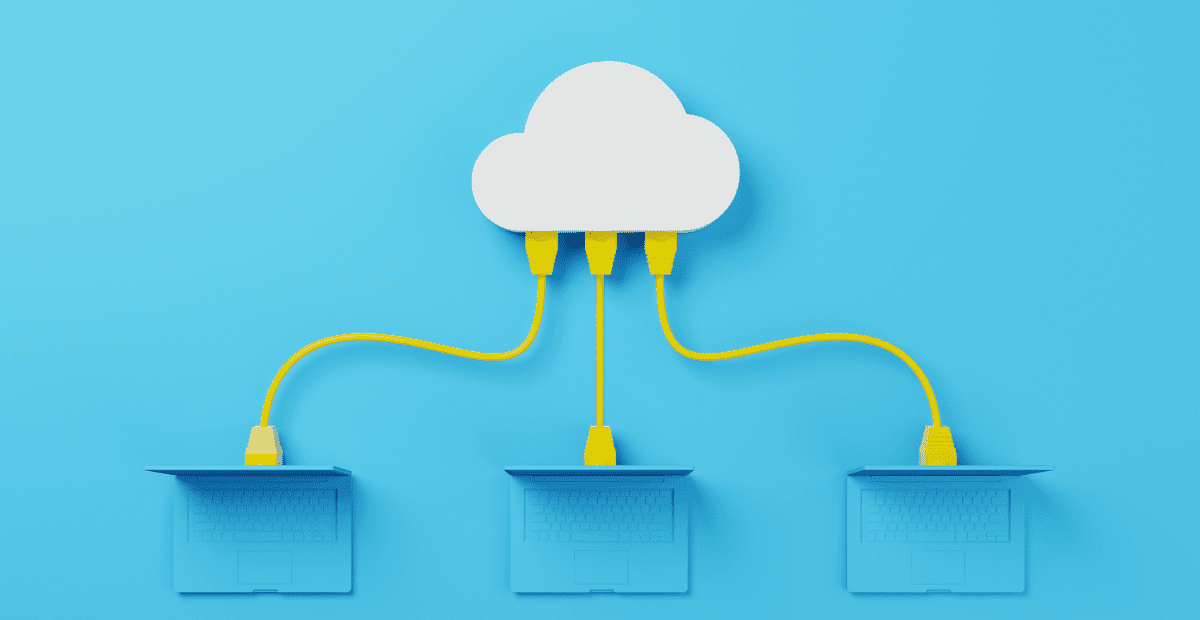In an era where technology is reshaping every profession, accountants are no exception. The traditional image of an accountant buried under piles of paper is becoming a thing of the past. Today’s accountants are tech-savvy professionals who leverage technology to enhance accuracy, efficiency, and decision-making capabilities. As we delve into this transformation, it’s crucial for beginners to understand the various technological tools at their disposal. From software that automates mundane tasks to sophisticated analytical tools, technology is not just an aid but a necessity in the modern accountancy landscape.
Cloud Computing – Securely Access Financial Data from Anywhere
Cloud computing has revolutionized the way accountants handle data. By storing financial information on remote servers, cloud computing enables secure access from any location with an internet connection. This technology facilitates real-time data updates and collaboration, allowing accountants to work more flexibly and efficiently. It’s especially beneficial for those who need to collaborate with teams or clients in different locations. Additionally, cloud platforms often come with advanced security measures, ensuring that sensitive financial data is well-protected against unauthorized access.
Accounting Software – Automate Tasks, Improve Accuracy, and Save Time
Modern accounting software automates many of the repetitive tasks that once consumed an accountant’s time, such as data entry, calculations, and report generation. This automation reduces the likelihood of human error, thereby improving the accuracy of financial records. Software solutions can also handle complex tasks like tax preparation, payroll processing, and budgeting with greater efficiency and less effort. This not only saves time but also allows accountants to focus on more strategic aspects of their job, such as financial analysis and advisory roles.
Data Analysis Tools – Gain Insights and Make Informed Decisions
Data analysis tools empower accountants to delve deep into financial data and extract meaningful insights. These tools can analyze trends, identify anomalies, and provide valuable forecasts. With these insights, accountants can offer more informed advice to their clients or employers, helping them make better financial decisions. Data analysis is particularly useful in identifying areas of cost reduction, revenue enhancement, and investment opportunities.
Artificial Intelligence and Machine Learning – Predict Trends and Provide Proactive Advice
AI and machine learning are at the forefront of technological innovation in accountancy. These technologies can analyze large volumes of data to predict future trends and financial outcomes. They enable accountants to provide proactive advice, foresee potential financial risks, and identify profitable opportunities. AI-driven tools can also automate complex decision-making processes, such as credit scoring and risk assessment, making them invaluable assets in the modern accounting toolkit.
Mobile Accounting – Manage Finances On-the-Go with Mobile Apps
Mobile accounting apps have made financial management more accessible and convenient. These apps allow accountants and their clients to track expenses, send invoices, and manage accounts from their smartphones or tablets. This mobility is particularly advantageous for small business owners and freelancers who need to manage their finances while on the move. It also supports a more responsive approach to financial management, with real-time updates and notifications.
Collaboration Tools – Seamlessly Work with Teams and Clients
Collaboration tools have transformed how accountants interact with their teams and clients. These tools enable real-time communication, document sharing, and collaborative work on financial documents. They are essential in today’s remote working environments, breaking down geographical barriers and fostering a collaborative work culture. Effective collaboration tools can significantly enhance productivity and ensure that all stakeholders are on the same page.
Cybersecurity Measures – Protect Sensitive Financial Data from Threats
With the increasing digitization of financial data, cybersecurity has become a paramount concern. Accountants must employ robust cybersecurity measures to protect sensitive data from cyber threats such as hacking, phishing, and malware. This includes using secure passwords, two-factor authentication, regular software updates, and employee training in cybersecurity best practices. Protecting client data is not just a technical requirement but also a matter of professional ethics and legal compliance.
Compliance Software – Stay Updated with Ever-Changing Regulations
Compliance software helps accountants stay abreast of regulatory changes and ensures that financial practices comply with current laws. This software can track changes in tax laws, financial regulations, and reporting standards. It alerts accountants to necessary updates in practices, helping avoid penalties for non-compliance. In an environment where financial regulations are constantly evolving, compliance software is an invaluable tool for maintaining legal and ethical standards.
E-Invoicing and Payment Solutions – Streamline Billing and Payment Processes
E-invoicing and online payment solutions streamline the billing and payment process, making it faster, more accurate, and less prone to errors. These solutions can automate invoice generation, send reminders for payments, and facilitate faster receipt of funds. They are particularly beneficial for improving cash flow management and reducing the administrative burden associated with manual billing processes.
Document Management Systems – Organize and Store Documents Efficiently
Document management systems provide a structured way to store, manage, and retrieve financial documents. They replace traditional paper-based filing systems with digital storage, making documents easier to access and less likely to be lost or damaged. These systems often feature search functionality, version control, and access logs, enhancing both efficiency and security in document handling.
Financial Reporting Tools – Create Detailed and Accurate Financial Reports
Financial reporting tools are essential for creating comprehensive and precise financial reports. These tools can automate the generation of income statements, balance sheets, cash flow statements, and other financial documents. They ensure that reports are consistent, comply with accounting standards, and are easily understandable. This not only saves time but also enhances the reliability and credibility of the financial information presented.
Each of these technologies plays a critical role in modernizing and enhancing the accounting profession, making it more efficient, accurate, and strategic.
Technology has drastically transformed the way accountants operate. Cloud computing, for instance, allows accountants to store and access financial data securely from any location, enabling remote work and real-time collaboration. Accounting software, like Bright’s Accountancy Manager (https://brightsg.com/en-gb/accountancy-manager), streamlines tasks such as bookkeeping, tax preparation, and payroll, reducing the likelihood of human error and freeing up time for more strategic activities.
Data analysis tools are another game-changer. They enable accountants to extract meaningful insights from large datasets, facilitating better decision-making and forecasting. Moreover, artificial intelligence and machine learning are beginning to play significant roles in predicting financial trends and offering proactive advice, thereby enhancing the accountant’s role as a strategic advisor.
Mobile accounting apps are making financial management more accessible. Accountants can now oversee transactions, generate invoices, and monitor financial health on-the-go. Collaboration tools have also improved the efficiency of working with teams and clients, making the sharing of information seamless and secure.
In a world where cyber threats are increasing, cybersecurity measures are paramount in protecting sensitive financial data. Accountants must be well-versed in these measures to safeguard client information. Similarly, compliance software helps accountants stay abreast of regulatory changes, ensuring that their practices remain compliant with the latest laws and standards.
E-invoicing and payment solutions have streamlined the billing and payment processes, making them more efficient and less prone to errors. Document management systems have replaced physical filing systems, leading to better organization and easier retrieval of documents.
Financial reporting tools have been instrumental in creating detailed and accurate financial reports. These tools not only save time but also enhance the credibility of the financial data presented.
In conclusion, technology has become an indispensable ally for accountants. It has not only simplified and automated routine tasks but also opened new avenues for strategic advising and decision-making. As technology continues to evolve, accountants must remain adaptive and proactive in embracing these changes. From cloud computing to AI-driven predictive analytics, the tools at their disposal are powerful. They not only streamline operations but also provide deeper insights into financial health and trends. For aspiring accountants, understanding and leveraging these technological advancements is not just a skill but a necessity in today’s digital world. The ability to adapt to and harness these tools will define their success in an increasingly competitive and tech-driven industry. With technology as their companion, accountants can look forward to a future where they are not just number crunchers, but strategic advisors playing a pivotal role in shaping the financial strategies of businesses and individuals alike.



































